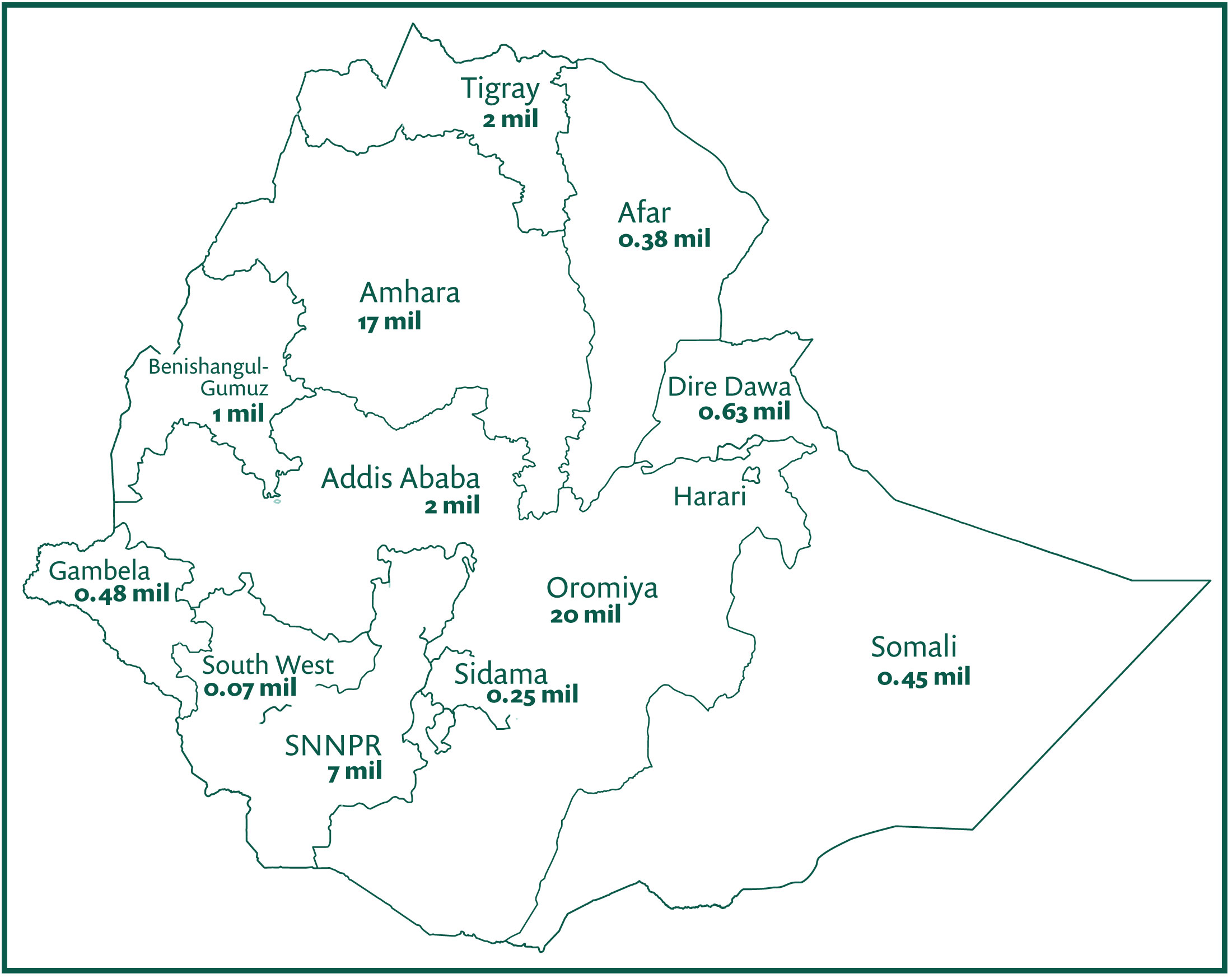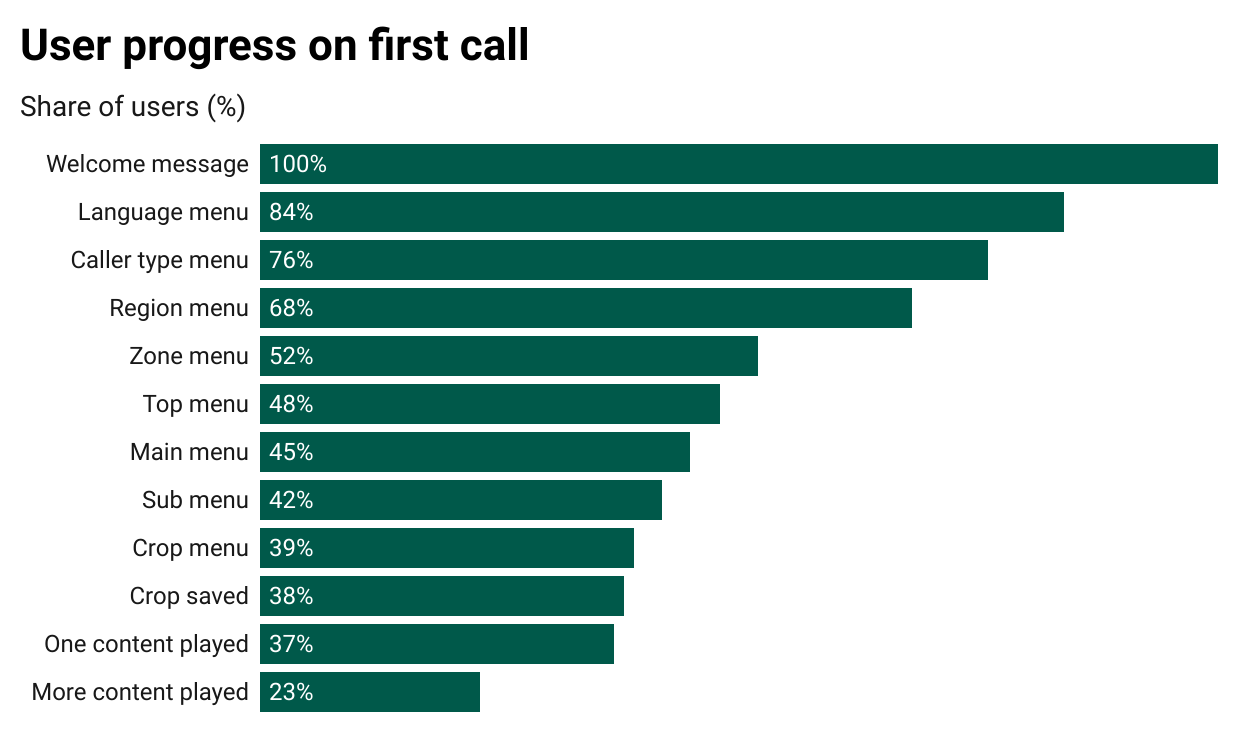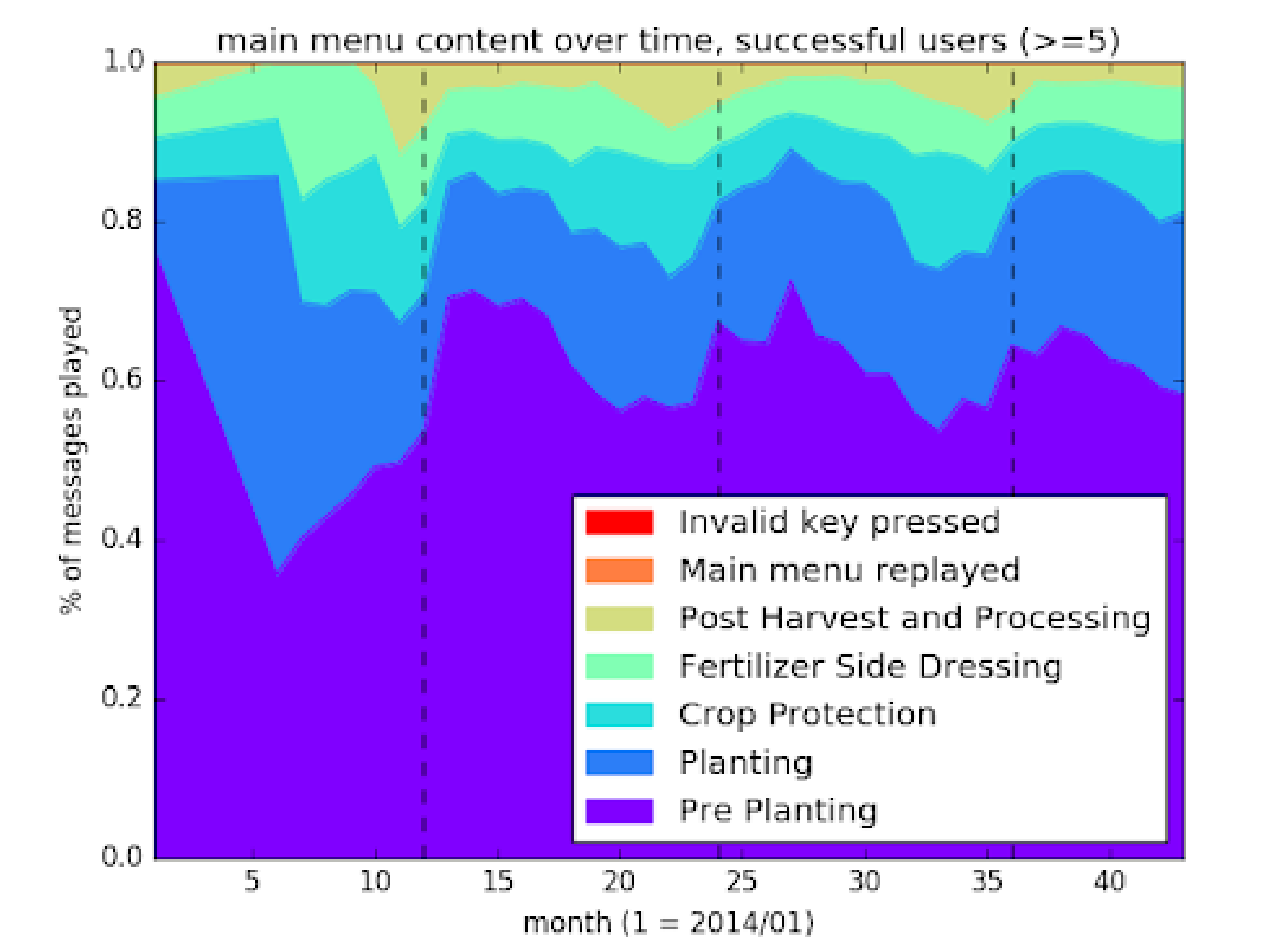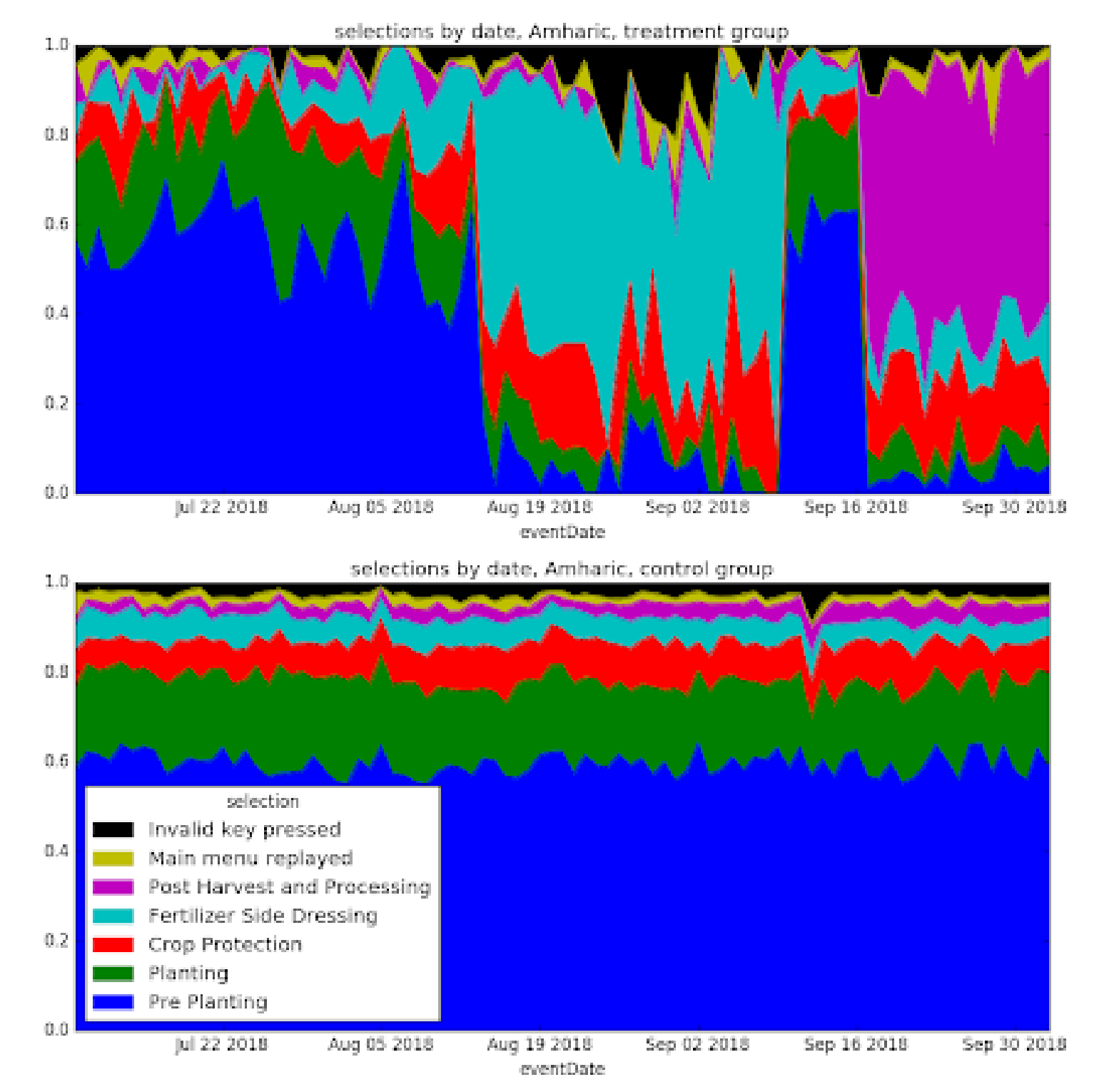A data driven, evidence-based and user-centered approach
- July 11, 2024
- 5 minutes read
Improving Ethiopian smallholder farmers’ productivity and resilience via farmer hotline: Learnings from a data-driven and evidence-based collaboration with the Ethiopian Agricultural Transformation Institute
This blog extracts some key insights from a working paper entitled “Using data for development: Evidence from a phone system for agricultural advice” authored by Torsten Figueiredo Walter, Michael Kremer, Ofir Reich, Zhengyun Sun, Sam van Heerwaarden, Habtamu Yesigat Ayenew, Elias Nure, and Temesgen Gebeyehu.
Motivation
Alemnesh, a woman farmer from Northern Ethiopia has been a frequent user of the 8028 farmers’ hotline system for agricultural information. When asked why she called the ATI 8028 farmers’ hotline system when there is a development agent (DA) i.e. an extension worker where she lives, she replied “I call 8028 any time I need information about farming—I won’t get the development agent any time I need help. In addition, the system has everything about crops or livestock”. Millions of farmers are in similar situations, most with low digital literacy, without access to information that could enable them to improve their lives. PxD seeks to address these information barriers for millions of farmers like Alemnesh across Ethiopia.

The 8028 Hotline & ATI
The Agriculture Transformation Institute (ATI) is a strategy- and delivery-oriented government organization established to transform Ethiopia’s agricultural sector by solving strategic bottlenecks. ATI launched the 8028 farmers’ hotline in 2014 to provide mobile-phone-based digital agricultural advice (e.g. available improved varieties, fertilizer recommendations, disease and pest management) to farmers in Ethiopia. The system can be accessed nationwide through a toll-free phone number and is available in Amharic, Oromiffa, Tigrigna, Sidama, Wolaytta, and Somali languages. As of August 2023, the system registered close to 6.5 million callers and 65 million calls from across the country.
ATI and PxD first partnered to identify ways to improve the user experience and impact of the 8028 farmers’ hotline in July 2017. We began by analyzing the call logs generated by the system to identify potential system improvements and observed:
- A particular challenge of using an interactive voice response (IVR) system is passing through the various stages (step 1: complete registration steps (language, location, gender, user type); step 2: choose the production system (rainfed or irrigation); step 3: choose from the top menu (pre-planting, planting, fertilizer application, crop protection and post-harvest); step 4: choose from the sub-menus; and step 5: choose the crop type).
- A substantial number of callers hung up before reaching the content-listening stage in the 8028 service’s menu. As shown below, only 37% of users accessed any advice in their first call. The number of users who hung up is more significant when the caller was required to press a double-digit number.
- Most users simply selected the first menu and accessed similar content regardless of the season. As shown in Fig. 5, about 60% of users chose the pre-planting menu across the varying seasons in the cropping calendar. This is likely due to the low digital literacy level of the users and less intuitive menu names.
- Another challenge was the dejargonization of content. The farmers’ hotline often uses technical terminology, including chemical names, elements, disease names, varieties, etc., and uses units of measurement that may be unfamiliar to farmers (such as 13% moisture content, 3 cm depth, etc.).
Deploying a data-driven and evidence-based approach
The expansion of digitization and digitized systems opens up new opportunities to leverage data to make systems easier to use and understand. In line with PxD’s core operating principles, data-driven and evidence-based approaches have been used to improve the 8028 service. Some examples include:
Making registrations easier
To reduce the number of people dropping out of the system, we removed the registration step in the first call which requires users to answer several questions about their name, location, land, etc. which led to an 18% increase in users accessing agricultural advice (Fig. 4).

Fig.3 User progress on first call (Source: PxD)

Fig.4 Postponing registration (Source: PxD)
Improving access to relevant content
To improve users’ access to seasonally relevant content, we conducted an a/b test by rotating the menus in accordance with the cropping calendar. For example, pre-planting became the first item in the menu before the first onset of rain, when most preparation work is expected to happen. Similarly, the planting menu came first during the planting period, the post-harvest menu came first during harvesting season, and so on. This a/b test confirmed that rotating the menu with the agronomic seasons helps 60% of the users select seasonally relevant content (Fig. 6).
Improving comprehension of messages
Condensed contents and lengthy paragraphs also made comprehension difficult for farmers. We worked on the content to make it simple, short, dejargonized, comprehensible, and actionable. For example, “Harvest the crop when the moisture content is 16-18%” was changed to “Harvest the crop when the pod and stem have turned yellow and when the food barley cracks when bitten.”

Fig.5 Menu choices across time (PxD analysis)

Fig.6 Seasonal menu rotation (PxD analysis)
Implementation of recommendations to improve user experience
Through the experiments we conducted in collaboration with ATA, we found that tweaks in the IVR system can lead to a significant increase in the agricultural advice accessed by farmers.
Experiments like a menu replay when no option was selected, and removing prompts to save crop to profile were implemented. Some experiments did not influence user experience and were not adopted, such as adding pauses between language options and an introduction to using the IVR system.
Using digital tools and transformation for agricultural advisory services open up ongoing opportunities for improvement for the predominantly in-person extension system. Learning and insights from system usage data, strong research, and a productive partnership between ATI and PxD have iteratively improved 8028 farmers’ hotline services. This has improved farmers’ access to advisory content and seasonally relevant information and has a high potential to enhance the uptake of improved agricultural technologies and practices, boost agricultural productivity, and respond to food security situations in the country.

Stay Updated with Our Newsletter

Make an Impact Today


